Donald Trump goes after Clinton – Bill Clinton – in rancorous race

Donald Trump abruptly resurrected Bill Clinton‘s impeachment on Thursday, adding the former president’s infidelities to the already-rancorous 2016 campaign. Trump warned voters in battleground New Hampshire that a Hillary Clinton victory would bring her husband’s sex scandal back to the White House. It was Trump’s latest effort to bounce back from Monday night’s debate performance, which has been widely panned as lackluster. In contrast, Clinton has delivered a mostly positive message in the days since her debate performance re-energized her candidacy. Clinton is stressing that her plans will solve the kind of kitchen-sink problems facing American families — the high cost of childcare, mounting student debt burdens and unpaid family leave. Trump, though promising lower taxes and “jobs, jobs, jobs” for American workers, has intensified the dire warnings and personal attacks that have defined his outsider presidential bid. He took it a step further on Thursday. “The American people have had it with years and decades of Clinton corruption and scandal. Corruption and scandal,” Trump charged. “An impeachment for lying. An impeachment for lying. Remember that? Impeach.” That was a reference to Bill Clinton. After an investigation by an independent counsel, the House approved formal impeachment charges in late 1998 in connection with President Clinton’s testimony about his affair with a White House intern, Monica Lewinsky, and other matters. He was acquitted of the impeachment charges by the Senate. Trump’s team said he had been prepared to bring up the Lewinsky scandal during Monday night’s debate but decided otherwise because the Clintons’ daughter, Chelsea, was in the room. Trump did not bring up Lewinsky by name on Thursday. Shortly before Trump’s remarks, Clinton offered a more optimistic message to supporters in Iowa’s capital city. “I want this election to be about something, not just against somebody,” she said in Des Moines. Asked Thursday about the possibility that Trump would raise her husband’s infidelities, Clinton said, “He can run his campaign however he chooses. That’s up to him. I’m going to keep talking about the stakes in this election.” Her aides argue that a summer barrage of attack ads against Trump, along with the candidate’s own controversial statements, have driven his negative ratings to historic levels, leaving them little ability to do more. That leaves her the choice of trying to win over undecided voters and Republicans concerned about Trump by emphasizing a positive vision for America. Indeed, at her Des Moines rally, Clinton offered a hopeful message to contrast with the doom-and-gloom themes that have been staples of Trump’s campaign. As she often does, she recounted her own background of working on children’s issues and her father’s struggles as a small businessman. “I know so much of this campaign has been about, you know, whatever my opponent said and who he attacked and who he denigrates — and the list is long,” Clinton said. “But it’s not about that, it’s about you. It’s about your families and your future, and each of us should be telling you what we intend to do in the job.” With Election Day less than six weeks away, early voting already is underway in Iowa and some other places. Trump and Clinton remain locked in a tight contest. Trump has included hopeful lines in his own remarks. But the New York businessman has not deviated far from his aggressive approach defined by insults that helped him win a crowded Republican primary election. In recent days, Trump and his supporters have raised anew a number of deeply personal attacks against Clinton, questioning her role in her husband’s infidelities and casting her as a corrupt tool of political donors and special interests. Trump has also assailed a 1996 Miss Universe pageant winner for her weight gain — an incident Clinton used in the this week’s debate to portray Trump as sexist. “The Clintons are the sordid past. We will be the bright and very clean future,” Trump declared in New Hampshire. Trump and Clinton meet again on the debate stage in 10 days, this time in St. Louis. In a nod to the concerns expressed by some Trump allies that he was insufficiently prepared for the first faceoff, Trump’s campaign and the Republican National Committee released a survey intended to engage supporters online. It asks whether he should use the second debate to criticize Clinton for her policies on terrorism, economics and trade. Absent is any inquiry about whether Trump should bring up her husband’s infidelities. In another reminder of how far this year’s campaign has veered into baffling territory, third-party candidate Gary Johnson, the former New Mexico governor, was being ridiculed after he was unable, in a television appearance, to name a single world leader he admired. The awkward moment drew immediate comparisons — including by Johnson himself — to his “Aleppo moment” earlier this month when he didn’t recognize the besieged city in Syria. Perhaps no state knows Clinton better than Iowa, where she campaigned on Thursday, but she has consistently struggled to connect. Her campaign is banking on the state’s in-person early voting, which started on Thursday, reflecting the premium that Democrats are placing this year on trying to get their voters to turn out long before Nov. 8. Democrats are concerned that a lack of enthusiasm will keep their voters from showing up in the same numbers that led to Barack Obama‘s victories in the past two elections. Republished with permission of the Associated Press.
Robert Bentley, others subpoenaed in impeachment investigation
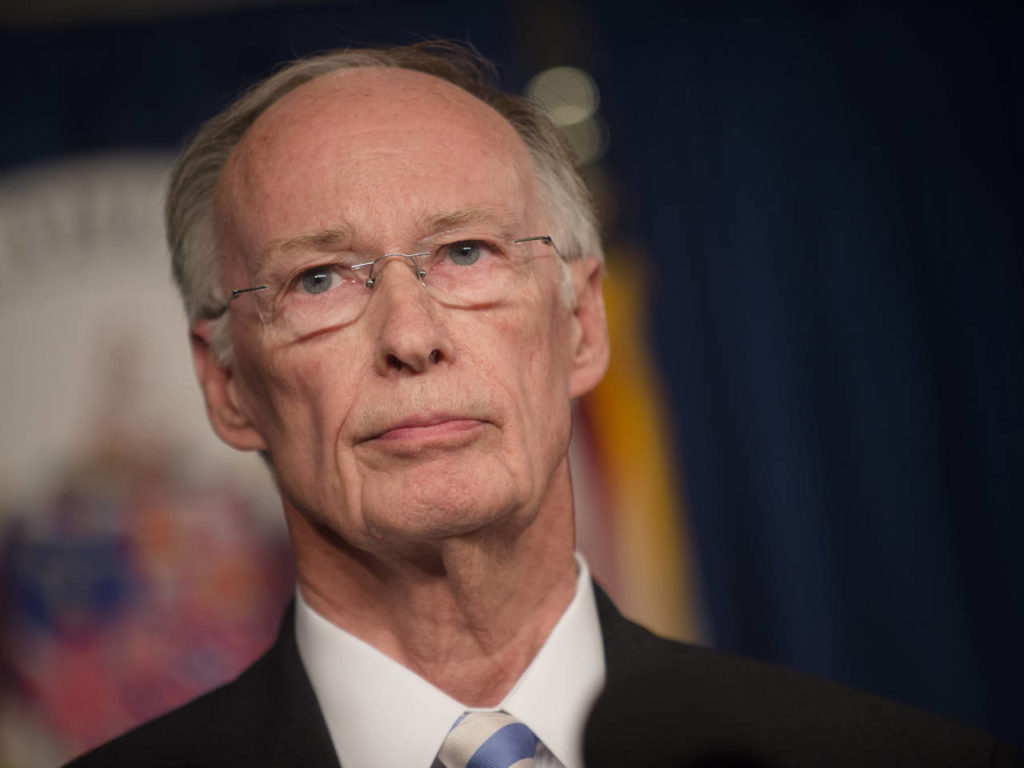
Alabama’s House Judiciary Committee issued subpoenas to Governor Robert Bentley, his former top aide Rebekah Mason, among others as part of an ongoing impeachment investigation against the governor on Thursday. The subpoenas were issued by Alabama House of Representatives Clerk Jeff Woodard after special counsel Jack Sharman claimed he wasn’t getting voluntarily cooperation. “The office of the governor has flatly, adamantly and in every way possible made clear they are not going to cooperate,” Sharman told the committee. “The same thing is true of every other person and entity on that list I provided you.” The following were issued subpoenas: Robert Bentley, individually and as Governor Bentley for Governor, Inc. Michael H. Echols Jonathan Mason Rebekah Mason Alabama Council for Excellent Government JRM Enterprises, Inc. RCM Communications, Inc. The subpoenaed documents also include five years of the governor’s tax returns, bank records, personnel records, cellphone records, text messages and other communications with Rebekah Mason, Jon Mason, Spencer Collier, Stan Stabler, Ray Lewis and Cooper Shattuck, as well as any government payments to companies belonging to Mason and her husband. “These individuals and corporations have until 5:00 p.m. on Monday, October 10, 2016, to deliver the requested documentation to the special counsel,” said Judiciary Committee Chairman and Andalusia-Republican Rep. Mike Jones in a statement. “If they fail to comply, we will take appropriate action.” Bentley still maintains his innocence, claiming he has not broken any laws or done anything that would warrant impeachment.
Barack Obama signs short-term bill to fund government past election
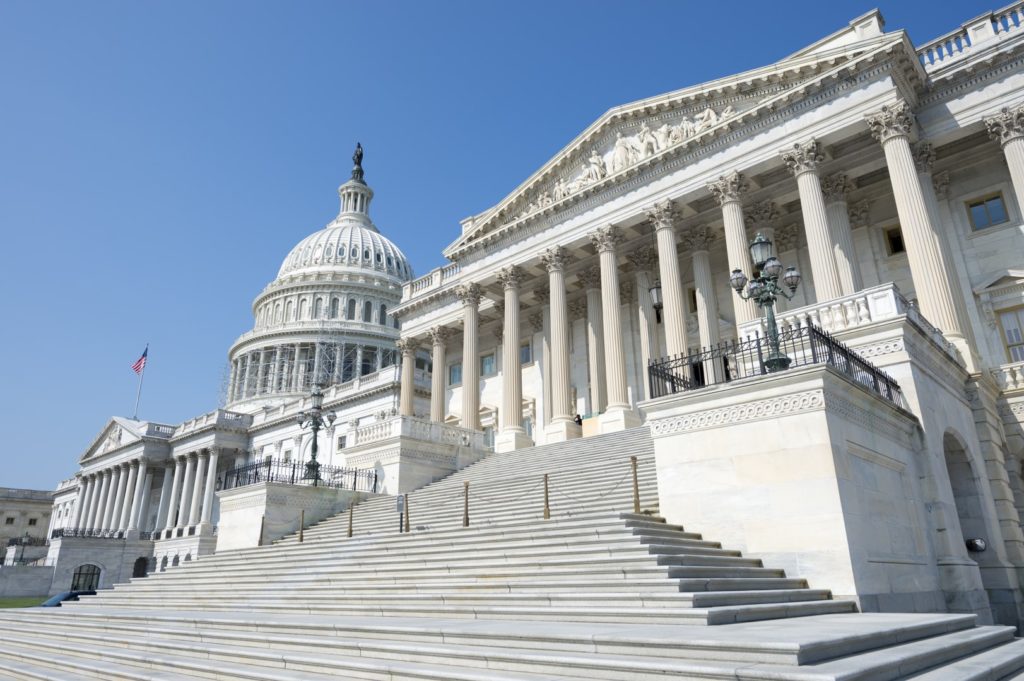
President Barack Obama has signed a short-term funding bill to keep the government from shutting down at the end of the week. Lawmakers eager to leave town to campaign for re-election gave themselves breathing room by voting to continue existing spending levels for another 10 weeks, beyond the Nov. 8 election. Members of Congress will have to reach agreement on funding for the rest of the budget year when they meet in a lame-duck session after the election. The bill Obama signed Thursday also provides $1.1 billion to address the Zika crisis. And it has $500 million to help Louisiana flood victims. Republished with permission of the Associated Press.
Newly released emails shed light on Trussville city council conflict

According to emails exclusively obtained by Alabama Today, current Trussville Mayor Gene Melton and mayoral candidate and City Councilman Buddy Choat wished to delay going into an Executive Session to vote on whether or not to place on administrative leave Trussville Fire Chief Russell Ledbetter and Fire Marshal Steve Reasonover pending an internal investigation as late as Monday afternoon. “Anthony I received a part of the information requested this morning but need additional time to compile the rest of the data,” Melton wrote in response to City Council President and mayoral candidate Anthony Montalto‘s request that the Council convene an Executive Session to make the decision behind closed doors. “I hope to be able to report back in the next couple of days with a plan and a possible solution to bring this issue to a close quickly. I respectfully ask that you not go into executive session during tomorrow night’s meeting.” “Mayor,” Montalto replied, “I feel we need to go ahead with our decision to go into Executive Session again tomorrow night. With the information that was shared with us last Thursday, I feel the sooner we make a decision about our role, the better.” A few minutes later Choat agreed with Mayor Melton writing, “I disagree. We need ALL of the facts and information to make any decision this important.” When Alabama Today reached out to Councilman Choat regarding the email, he explained that he didn’t want to make the vote on whether or not to place the two city employees on administrative leave until they had enough information to make him feel comfortable taking such drastic measures. “My opinion was, if we’re going to take action, let’s get all the information we can,” explained Choat. “I thought that in case some of that information may have disputed what we had already seen or heard, but obviously it did not. We didn’t get anything to change our minds, so it was unanimous among us to go ahead and do what we had to do.” Choat and Montalto will face off Tuesday, Oct. 4 in a runoff bid to replace Melton as mayor of Trussville. Alabama Today has covered this story since the Executive Session on Tuesday, Sept. 27. Follow us for more details as they break. For the original email chain, click here: choat-email
Alabama Chief Justice Roy Moore waits for judgment day on keeping job
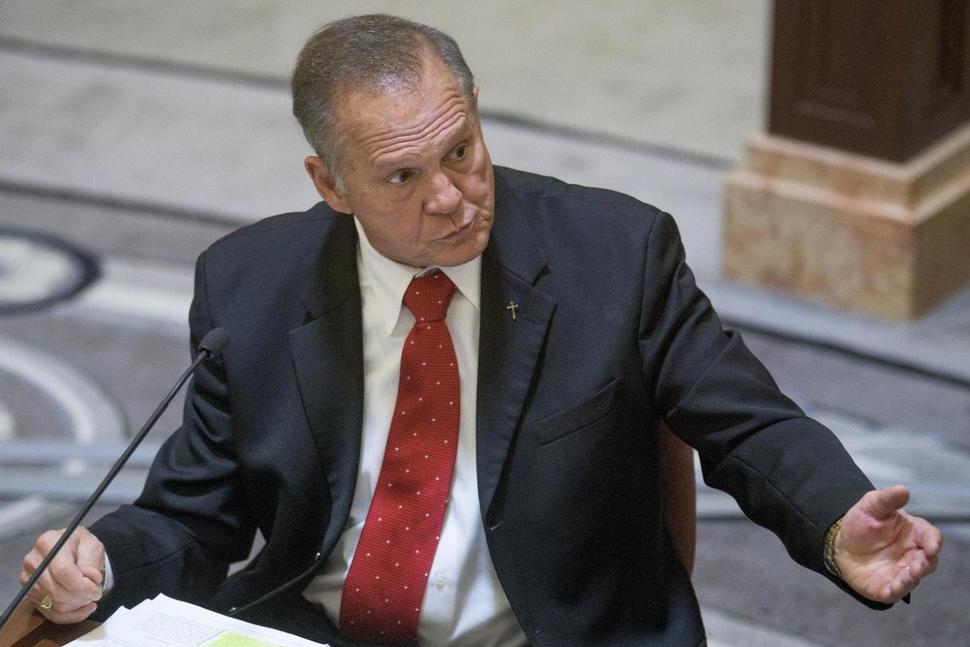
Alabama Chief Justice Roy Moore — famously removed from office 13 years ago for refusing to remove a Ten Commandments display — appeared before a judicial disciplinary panel Wednesday to answer accusations that he urged defiance of the federal courts again: This time on gay marriage. The state’s Judicial Inquiry Commission is seeking Moore’s removal from the bench, arguing that in January he directed, or at least encouraged, the state’s probate judges to refuse marriage licenses to gay couples. “We are here 13 years later because the Chief Justice learned nothing from his first removal. He continues to defy the law,” said John Carroll, a lawyer representing the Judicial Inquiry Commission, told the panel. Carroll said Moore urged 68 probate judges to defy both what the U.S. Supreme Court had ruled on gay marriage and a federal judge’s direct order to probate judges to stop enforcing Alabama’s gay marriage ban. Moore, taking the stand in his own defense, dismissed the accusation as “ridiculous.” “It would be against the principles that I hold dear to tell anyone to defy a court order,” Moore, 69, said. The outspoken Republican jurist now waits for his judgment day. The nine-member court has 10 days to rule. The chief judge, Michael Joiner, said the court would return its decision “as soon as possible.” It is not an unfamiliar place for Moore. The same panel removed Moore in 2003 after he refused to obey a federal court order to remove a 5,200-pound Ten Commandment monument from the state judicial building. He was re-elected to the bench in 2012, a victory he described as a vindication. Moore’s supporters gave him a loud ovation when he entered the ornate courtroom where he normally presides as the state’s top judge. In the five-hour hearing Wednesday, Moore was alternately portrayed as a politician on a mission to block gay couples from marrying in Alabama or a judge who was merely trying to answer questions from confused probate judges. Alabama had been in a twisting legal battle over gay marriage that one lawyer dubbed a “game of constitutional chicken.” Gay couples began marrying in some parts of Alabama after a federal judge ruled the state’s same-sex marriage ban was unconstitutional in January of 2015. The weddings came to an abrupt halt when the Alabama Supreme Court in March of 2015 ordered probate judges to continue enforcing the ban. The U.S. Supreme Court in June of 2015 ruled gay and lesbian couples had a fundamental right to marry and U.S. District Judge Callie Granade ordered that she was permanently barring Alabama probate judge from enforcing Alabama’s gay marriage ban. The accusations against Moore center around a Jan. 6, 2016, administrative order he sent probate judges saying the order to refuse the licenses remained in “full force and effect.” Moore said he was only correctly noted that the Alabama Supreme Court hadn’t yet ruled on what to do in the wake of the U.S. Supreme Court decision. “I gave them a status in the case, a status of the facts that these orders exist. That is all I did,” Moore said. But another lawyer for the commission, R. Ashby Pate, argued by that point it was “game over” and that Moore was trying to muddy what was a settled issue. “His order sowed confusion. It did not clear it up. He urged defiance, not compliance,” Pate said. Moore stands accused during a season of political upheaval in Alabama. The house speaker was removed from office this summer for criminal ethics violations, and a legislative committee will decide if evidence supports impeaching Gov. Robert Bentley after he was accused of having an affair with a top staffer. The 2016 proceeding took on much of the flavor of Moore’s 2003 removal as Moore stood by his actions and demonstrators filled the courthouse steps. Rainbow flags decorated one side of the courthouse steps while Moore’s supporters blared Christian music and waved “Judge Moore is Right” signs. “The truth is homosexuality is wrong,” said Donna Holman, who traveled 12 hours from Iowa to support Moore. Kim McKeand and Cari Searcy, the lesbian couple whose suit led to a federal judge declaring Alabama’s gay marriage ban unconstitutional, told reporters that Moore seemed to be on a personal mission to block marriage equality in Alabama ever since the ruling in their case. “Something happened that I didn’t expect. There was a tide of love that rolled through Alabama and people were standing up and saying, ‘No. This is my state too,’” Searcy said. Republished with permission of the Associated Press.
Despite harsh reviews, Donald Trump resists new debate approach

Unmoved by harsh debate reviews, a defiant Donald Trump renewed his attacks against a former Miss Universe winner on Wednesday, showing no sign of making big changes to his message or debate preparation before his second face-off with Hillary Clinton. The outspoken Republican nominee instead pressed ahead with an aggressive strategy focused on speaking directly to his white, working-class loyalists across the Midwest. Democrat Clinton, meanwhile, pushed to improve her standing among younger voters with the help of the president, Sen. Bernie Sanders and other key allies, 48 hours after a debate performance that seemed to spark badly needed enthusiasm. Those closest to Trump insisted the Republican presidential nominee was satisfied with Monday night’s debate, even as prominent voices within his own party called for more serious preparation next time following an opening confrontation marked by missed opportunities and missteps. “Why would we change if we won the debate?” former New York Mayor Rudy Giuliani, a key Trump ally and traveling partner this week, told The Associated Press. The next debate is 11 days away. While his plan forward is far from set, Trump is not planning to participate in any mock debates, although he is likely to incorporate what one person described as “tweaks” to his strategy. Specifically, Trump is likely to spend more time working on specific answers and sharpening his attacks after spending much of the first meeting on defense, said that person, who spoke on condition of anonymity to discuss internal campaign strategy. That may not be enough to satisfy concerned Republicans. Former House Speaker Newt Gingrich said Trump should have been better prepared and he recommended that the candidate work harder with skilled coaches. He said, “What you need is people who are professional debaters.” South Carolina Sen. Lindsey Graham said simply, “The only advice I could give him, and take it for what it’s worth: Prepare better.” The New York businessman was on the defensive throughout the debate, particularly when Clinton highlighted his description of a former Miss Universe winner as “Miss Piggy” because she had gained weight. Trump condemned former Miss Universe Alicia Machado again Wednesday night in an interview on Fox News, suggesting he was trying to save her job by shaming her into losing weight in the late 1990s. He also cited unsubstantiated reports that she threatened a Venezuelan judge more than a decade ago. Machado says Trump humiliated her by inviting reporters to her gym sessions and calling her “Miss Piggy.” “I helped somebody and this is what you get for helping somebody,” Trump told Fox on Wednesday. Throughout his outsider presidential bid, Trump has refused to deviate from a strategy hinged on an ambitious travel schedule packed with massive rallies that draw overwhelmingly white crowds. Clinton, meanwhile, sought Wednesday to parlay her widely praised debate performance into stronger support from women, young Americans and other critical voter groups. She got help from her party’s biggest stars. President Barack Obama hammered the billionaire over his business practices and treatment of women in an interview aired on Steve Harvey’s radio show, which is particularly popular among black audiences. The Democratic president said his own legacy was “on the ballot” in November. He also suggested Clinton wasn’t getting enough credit, possibly because she’s a woman. And his wife, first lady Michelle Obama, accused Trump of trying to undermine her husband’s presidency for years by questioning his birthplace. Trump publicly admitted the president was born in America for the first time earlier in the month after spending years raising questions about the authenticity of Obama’s birth certificate. “Trust me, a candidate is not going to suddenly change” once in office, Mrs. Obama said at a rally for Clinton in Pennsylvania. Hoping to broaden her appeal among “millennials,” Clinton joined her primary rival, Vermont Sen. Sanders, on the trail for the first time since they held a “unity” rally in July in an attempt to heal divisions within the Democratic Party. Since then, Clinton has struggled to win over young Americans who formed a critical pillar of the coalition that twice elected Obama. Flanked by campaign signs promoting Clinton’s college affordability proposal, Sanders and Clinton touted a plan they developed to make college debt-free for millions of students from middle-class and low-income families. “None of this will happen if you don’t turn out and vote,” Clinton said at the University of New Hampshire, after a quick hug with Sanders. He declared, “It is imperative that we elect Hillary Clinton as our next president.” Trump struggled to attack Clinton consistently on the debate stage Monday night, but he lashed out at her aggressively Wednesday in campaign stops in Illinois, Iowa and Wisconsin. Among other charges, he mocked her lighter campaign schedule. The Democrat conceded during the debate that she had taken some time away from the campaign trail to prepare for their first debate. “You see all the days off that Hillary takes? Day off, day off, day off,” Trump told supporters at a rally in Council Bluffs, Iowa. He added a swipe at his opponent’s recent bout with pneumonia, which nearly caused her to collapse. “All those days off and then she can’t even make it to her car, isn’t it tough?” Republished with permission of the Associated Press.
Over 2.7 million Alabama election ballots headed for a reprint due to error
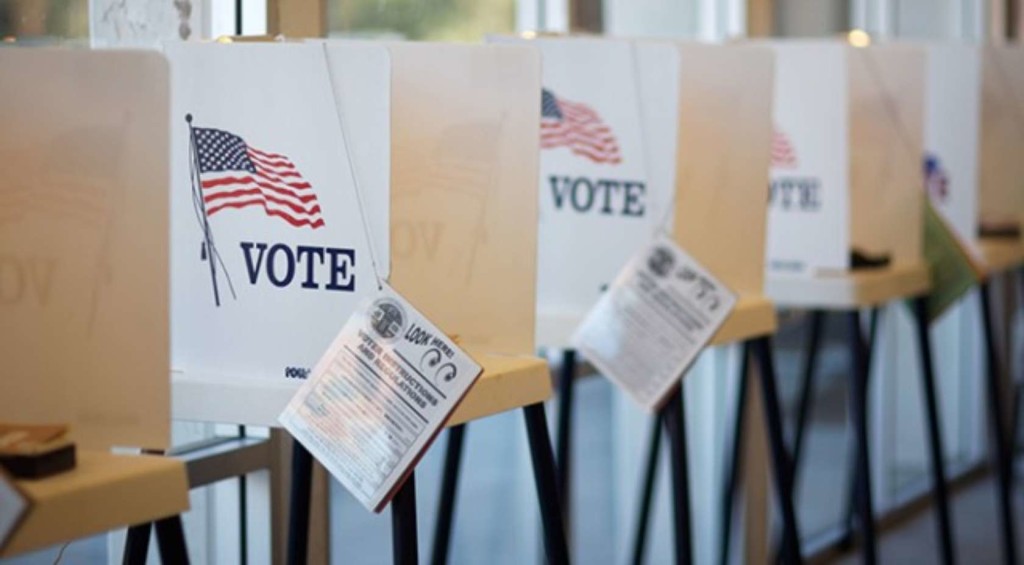
Ballots for next month’s election are being reprinted because of an error, Alabama Secretary of State John Merrill‘s office confirmed Thursday. Just weeks before voters will hit the polls, the secretary of state’s office was notified Monday that an omission was discovered regarding Statewide Amendment 2 — the first two paragraphs of the amendment were left off the state’s absentee ballots. The amendment is regarding the allocation of state park funds, and should read: Proposing an amendment to the Constitution of Alabama of 1901, to prohibit any monies from the State Parks Fund, the Parks Revolving Fund, or any fund receiving revenues currently deposited in the State Parks Fund or the Parks Revolving Fund, and any monies currently designated pursuant to statute for the use of the state parks system from being transferred for another purpose other than the support, upkeep, and maintenance of the state parks system. Notwithstanding, in the event that guest revenues to the State Parks Revolving Fund exceed the threshold of $50 million (as annually adjusted based on increases in the consumer price index) in a fiscal year, the sales and use and cigarette tax revenue distributed to benefit the State Parks System shall be reduced in the following fiscal year. The amount of the reduction shall correspond to the amount of guest revenue to the State Parks Revolving Fund exceeding the threshold. The amount of tax revenue not distributed to benefit the State Parks System shall be distributed to the General Fund. Proposing an amendment to Amendment 617 of the Constitution of Alabama of 1901, to allow the Department of Conservation and Natural Resources the option to provide for the operation and management, by non-state entities, of hotels, golf courses, and restaurants at any applicable state parks in Alabama. John Bennett, the deputy chief of staff and communications director for the secretary of state’s office, said after learning of the issue, Merrill re-certified the correct ballot language and ordered the vendor to print more than 2.7 million corrected ballots. It is unknown how much the oversight will ultimately cost taxpayers.
Judge dismisses Tuscaloosa school board election lawsuit
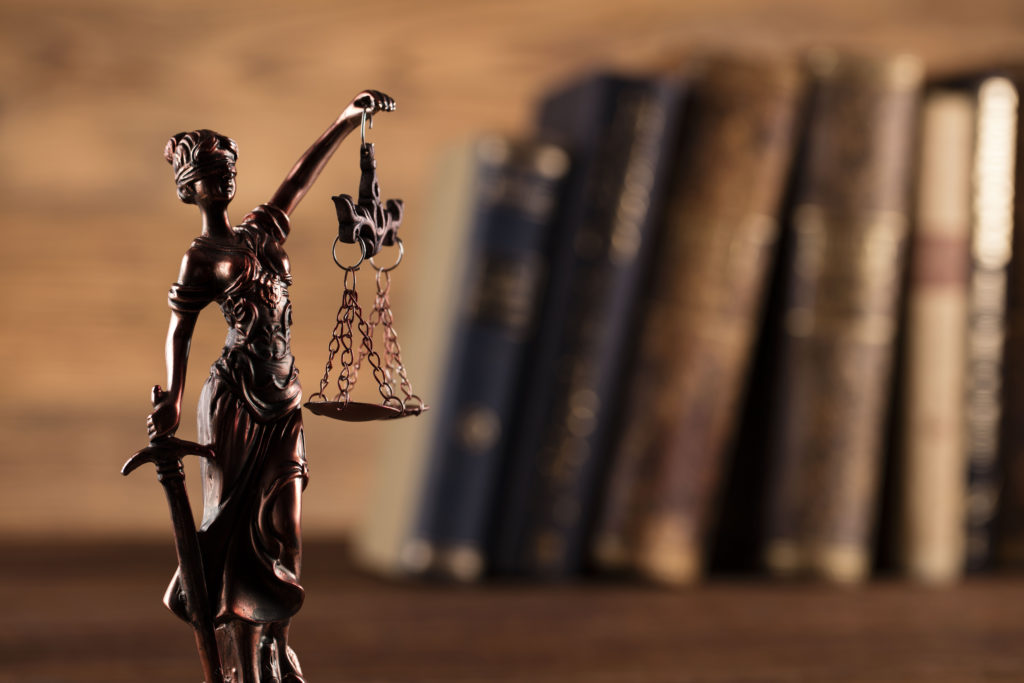
A judge has dismissed a lawsuit in a three-year-old dispute involving a school board election in Tuscaloosa. Media outlets report that Tuscaloosa County Circuit Court Judge Jim Robert’s decision came Tuesday afternoon. The case stems from the 2013 Tuscaloosa City Board of Education election, when then-incumbent school board member Kelly Horwitz was defeated by challenger Cason Kirby. Horwitz says illegal votes, which violated the 30-day residency requirement for municipal elections, were cast for Kirby. She also says Kirby was unfairly elected by members of the University of Alabama’s Greek organization that practice bloc voting. To win the election contest, Horwitz needed 88 people who cast invalid votes to admit they voted for Kirby. Roberts dismissed the case, saying it was clear Horwitz didn’t have enough people’s testimony to alter the results. Republished with permission of the Associated Press.
ALDOT looks ahead to next 25 years of Alabama roads

Planning Alabama’s transportation future requires careful planning, setting priorities, and making sometimes-difficult choices given limited resources. Which is why the Alabama Department of Transportation (ALDOT) has begun working on the 2040 Statewide Transportation Plan (SWTP), a federally mandated assessment that will serve as a blueprint of sorts to set the state’s transportation priorities for the next 25 years. The SWTP addresses all modes of travel for passengers and freight — roadways and bridges, transit, bicycle/pedestrian, rail, aviation, and waterways. It identifies system needs, evaluates investments in infrastructure and maintenance, and compares historic and anticipated funding levels against needs. The resulting plan establishes the programs, policies, and strategies that will be the focus of the state’s efforts through 2040. On Wednesday, the project’s planning committee met in Montgomery with stakeholders and the general public to discuss thoughts about transportation priorities for Alabama. The SWTP timeline: Sept. 2016: Existing conditions, travel demand model development, and first round of regional meetings Jan. 2017: Projected 2040 conditions and existing/future needs Feb. 2017: “What if” improvement scenarios April 2017: Draft Plan and second round of regional meetings May 2017: Final Plan Have thoughts about Alabama’s transportation future? Email the study team with comments or to be added to study contact list: altransplans@dot.state.al.us.
Daniel Sutter: Another way to protect the environment

Libertarian presidential candidate Gary Johnson is polling very well among millennials, recently receiving 29 percent support among voters aged 18-34. Nobel Prize-winning economist Paul Krugman doubted in the New York Times that millennials knew about Libertarian Party positions like using private litigation instead of Environmental Protection Agency (EPA) regulation. Although Professor Krugman finds a market-based environmental policy dubious, I think it could be more effective than EPA regulation. To see why, we need to consider why pollution is a problem. Economists identify the problem with pollution as an externality, meaning that firms or individuals are able to dispose of wastes as pollution into the air or water without paying for the resulting damage. Competition ensures that prices reflect costs and guide behavior, but prices only reflect the costs which firms must pay. Prices of manufactured goods consequently reflect the costs of labor, raw materials and electricity, but not the damage from the firms’ pollution. Therefore, prices send an incorrect signal to consumers and firms. The same problem would essentially arise if businesses got to use any resource for free, for instance, if a printing business got free paper. Why do businesses not have to pay to dump pollution into the environment? This is due to a property rights problem. We agree that we all have a right to breathe clean air, but cannot sell the air we “own” to the factory. We can sell, and firms must buy, our labor in the market, which results in wages and salaries. The lack of a market for pollution leads prices of manufactured goods to be wrong. The fates of different species further demonstrate the role of property rights in environmental problems. Whales and buffalo in the wild, effectively owned by no one, were nearly hunted to extinction. By contrast, 30 million cattle are killed each year in the U.S. without threatening the species with extinction. Philosophers can debate if people should kill them for food, but the effect of property rights is clear. Ranchers ensure cattle they own get food and water, are protected from predators, and are harvested sustainably. How might property rights protect air and water? We have some historical evidence. In England, the Crown owned fishing rights and granted them to anglers’ clubs. As water pollution started harming fish, anglers’ clubs could take legal action against polluters, and have successfully used the courts to protect water quality. Courts in the U.S. recognized pollution as a tort starting in the 1800s, allowing people to win suits against factories for air and water pollution. Once litigation establishes that a specific pollutant causes harm, firms know they must bargain with the persons harmed by pollution. Economists Roger Meiners and Bruce Yandle found that paper mills in Wisconsin compensated downstream property owners, essentially “buying” the right to pollute the river. Property rights, litigation, and negotiation make firms pay for pollution, just as for labor. Prices of goods and services will then reflect environmental harm. Markets, and not bureaucrats, can then balance protecting nature against productive activity, which is the attraction of the approach. Professor Krugman is skeptical of average citizens suing corporations over pollution, and not without reason. The movie “A Civil Action” details the challenges and enormous cost of litigation over groundwater contamination in Woburn, Massachusetts. Deep-pocketed defendants often draw out court cases in hopes that plaintiffs run out of money. And polluters can create judgment-proof shell companies to ensure that victims never collect compensation. But I view these as problems with our legal system, not problems with a market approach to environmental protection. EPA enforcement of the Clean Air and Clean Water Acts has significantly improved environmental quality while allowing continued economic growth. Regulation has worked in the past, but critics believe that the EPA today is pursing dubious risks like fine particulate matter and carbon dioxide at enormous cost and with little legal justification. Alternatives to government regulation exist, and perhaps we should now explore greater reliance on markets to protect nature. ••• Daniel Sutter is the Charles G. Koch Professor of Economics with the Manuel H. Johnson Center for Political Economy at Troy University and host of Econversations on TrojanVision. The opinions expressed in this column are the author’s alone and do not necessarily reflect the views of Troy University.
Early voting surge benefits Hillary Clinton
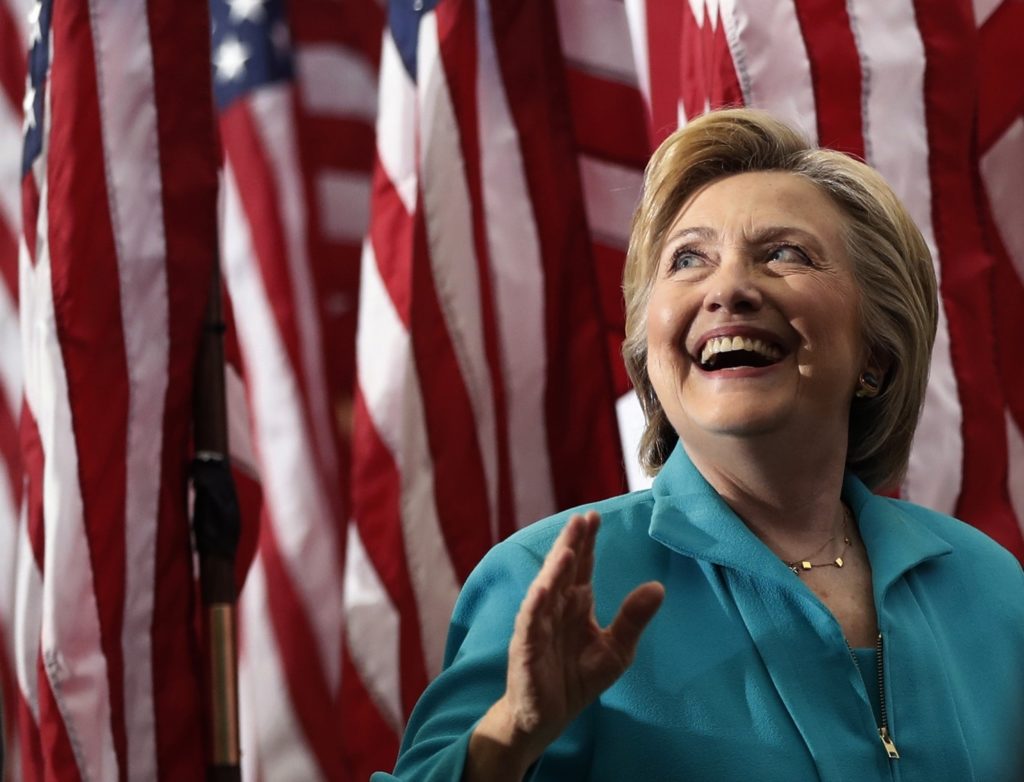
More people are seeking or casting early ballots in the critical states of North Carolina and Florida than at this point in 2012, with Hillary Clinton the likely beneficiary, as early voting shows signs of surging nationwide. Clinton may also benefit from an increase in ballot requests in Georgia, a traditionally Republican state where Democrats have made inroads. But Donald Trump is showing signs of strength in Iowa and parts of Maine, states won by Barack Obama in the last two presidential elections. The latest snapshot of ballot data offers a glimpse into a key question: How much of a vote advantage can Clinton run up before Nov. 8, when more Republicans tend to vote? There are two types of early voting: mailing in ballots and voting in-person before election day. Traditionally, Republicans have done better initially with early mail-in ballots, but Democrats surpass them once in-person voting begins. While the ballot sample to date remains small, Clinton so far is hitting guideposts in several battleground states compared to 2008 and 2012. Though preliminary, data compiled by The Associated Press suggest that advance voting could reach 40 percent of all votes cast nationally – up from 35 percent in 2012. It may also indicate a higher overall turnout in an election that has generated enormous public interest despite – or because of – the unpopularity of both major party candidates. In Ohio, nearly 806,000 voters had submitted absentee ballot applications. That’s up from nearly 723,000 during a similar period in 2012, when a record 1.87 million early ballots ultimately were cast by mail and in person. In Greensboro, North Carolina, Brandon Starkes, 28, cited the state’s unsuccessful bid to impose a voter ID law in his decision to vote early. The law was struck down as racially discriminatory. “I want to make sure I don’t have to deal with issues at the polls on Election Day,” he said. Starkes plans to vote for Clinton. Voting ahead of Election Day has been a growing phenomenon in the United States, designed to make it easier for people to participate in the democratic process. Absentee voting long has been a fixture in elections, and the trend toward greater early-voting has picked up steam, as increasing numbers of states have approved changes in election laws to permit it. This electoral culture change reflects not only interest in voter participation but also the changing, more mobile lifestyle of Americans. In-person early voting begins Thursday in Iowa, while Florida, Arizona and New Hampshire mail out ballots beginning early next month. In North Carolina, a must-win state for Trump, more than 69,150 ballots have been requested and 8,541 have been returned, according to AP data. That’s up from 8,326 ballots returned during a similar period in 2012. By party, Democrats made up 40 percent of the ballots returned compared to 35 percent for Republicans. At this point in 2012, Republicans had opened a wide lead over Democrats in returned ballots, 49 percent to 32 percent, leading to Mitt Romney‘s narrow win that state. While Romney was boosted by older whites who voted early by mail, white voters so far have been down this year, to 82 percent from 86 percent of submitted ballots. Black voters, more likely to cast ballots in person, were higher at 12 percent. “Voters appear to be listening and changing behavior in reaction to changes in laws,” said Michael McDonald, a University of Florida professor who runs the U.S. Election Project. Florida doesn’t start absentee balloting until Tuesday, but already a record 2.5 million voters have requested ballots. Republicans are ahead in ballot requests, 43 percent to 38 percent. That’s a much narrower gap than in 2008, the most recent in which comparable data was available. At that time, the Republicans held a solid lead in requests, 51 percent to 32 percent, according to data analyzed for the AP by Catalist, a Democratic firm that helped run data operations for Obama’s 2008 race. Obama won the state by 2.8 percentage points. The 2016 improvement can’t be wholly attributed to fresh Democratic enthusiasm. A change in Florida’s laws meant that voters in 2014 who requested absentee ballots could automatically receive them this year. Still, Democrats welcomed early gains, saying it will free them to target more undecided voters. Elsewhere, Republicans showed promise. In Iowa, Democratic requests for ballots continued to outpace Republicans, 63,880 to 24,700. Despite the 3 to 1 advantage, that’s a drop from 2012, when Democrats at this point led 119,318 to 24,909. Clinton plans to visit the state Thursday, the first day of Iowa’s early voting. “Democrats need to run up the score in Iowa, and so far they are not,” said Lindsay Walters, spokeswoman for the Republican National Committee. In Maine’s rural 2nd Congressional District, requests for ballots are down 18 percent, mostly among Democrats. Trump is counting on that district’s one electoral vote as part of his narrow path to the 270 electoral votes needed to win the presidency. If he succeeds, he would be the first Republican since 1992 to win the district in the mostly Democratic state. Maine and Nebraska are the only states that allocate electoral votes by congressional district. In Georgia, the state does not provide breakdowns of ballots by party, but overall ballot requests are up 5 percent to 82,504. By race, requests for ballots by whites rose to 62,732 while those from blacks were down slightly to 16,937, according to Catalist’s analysis for the AP. However, Asian-Americans, who in recent elections have leaned Democratic, nearly doubled to 1,588. Hispanics were lower at 761. Voter modeling by Catalist found that ballots broken down by party were at similar levels to 2012. Obama lost Georgia that year by roughly 8 percentage points. That means to win the state Clinton will have to make up more ground among African-Americans and Hispanics when in-person early voting begins Oct. 17. Republished with permission of the Associated Press.
Supreme Court to hear challenge over offensive trademarks

The Supreme Court will hear a First Amendment challenge over the government’s refusal to register offensive trademarks in a case that could affect the Washington Redskins. The justices agreed Thursday to take up a dispute involving an Asian-American rock band called the Slants, but they did not act on a separate request to hear the higher-profile Redskins case at the same time. Still, a high court ruling in favor of the Slants could bolster the football team’s legal fight. Both groups argue that it is unconstitutional for the government to reject trademark rights for offensive speech. The Slants tried to trademark the band’s name in 2011, but the U.S. Patent and Trademark Office denied the request on the ground that it disparages Asians. The band sued, and a federal appeals court ruled last year that the law barring offensive trademarks violates free speech rights. The Redskins hoped to piggyback on the band’s case, asking the Supreme Court to consider both disputes at the same time. The trademark office canceled the team’s trademarks last year after finding they are disparaging to Native Americans. But the team’s appeal has not even been heard yet by a federal appeals court in Richmond, Virginia. In an unusual request, the team asked the Supreme Court to intervene before the lower court acts. The high court almost never grants such requests. The Slants say their goal in choosing the name was to transform a derisive term about the shape of Asian eyes into a statement of ethnic and cultural pride. The Redskins have similarly claimed their name honors American Indians, but the team has faced years of legal challenges from Indian groups that say the name is racist. The team has also come under intense public pressure to change the name, though owner Dan Snyder has refused. In the band’s case, a divided federal appeals court in Washington, D.C., struck down a portion of the 70-year-old federal trademark law. The court’s majority said the First Amendment protects “even hurtful speech that harms members of oft-stigmatized communities.” The Obama administration is urging the high court to overturn the ruling. The government says the law “simply reflects Congress’ judgment that the federal government should not affirmatively promote the use of racial slurs and other disparaging terms by granting the benefits of registration.” The administration also argues that the law does not restrict speech because the band is still free to use the name even without trademark protection. The Slants and the Redskins can continue using their preferred names even without trademark protection. But a trademark confers certain legal benefits, including the power to sue competitors that infringe the trademark. For the Redskins, the team could lose millions if it can’t block the sale of counterfeit merchandise. The Redskins say they have an even stronger case against the government than the Slants because team has already relied on financial advantages of trademark protection for many years. The team registered six trademarks including the name between 1967 and 1990. The justices will hear arguments in Lee v. Tam, 15-1293, early next year. Republished with permission of the Associated Press.


